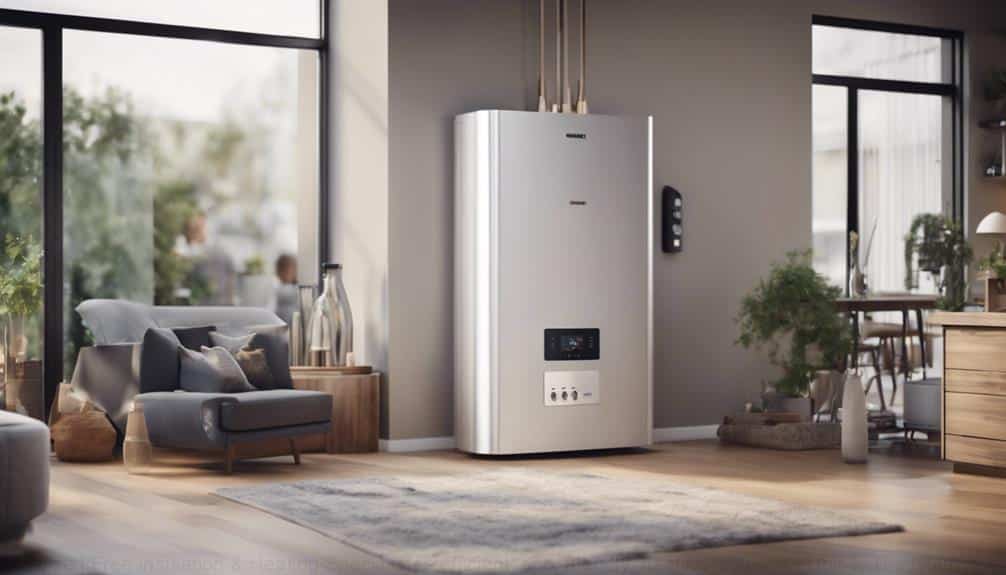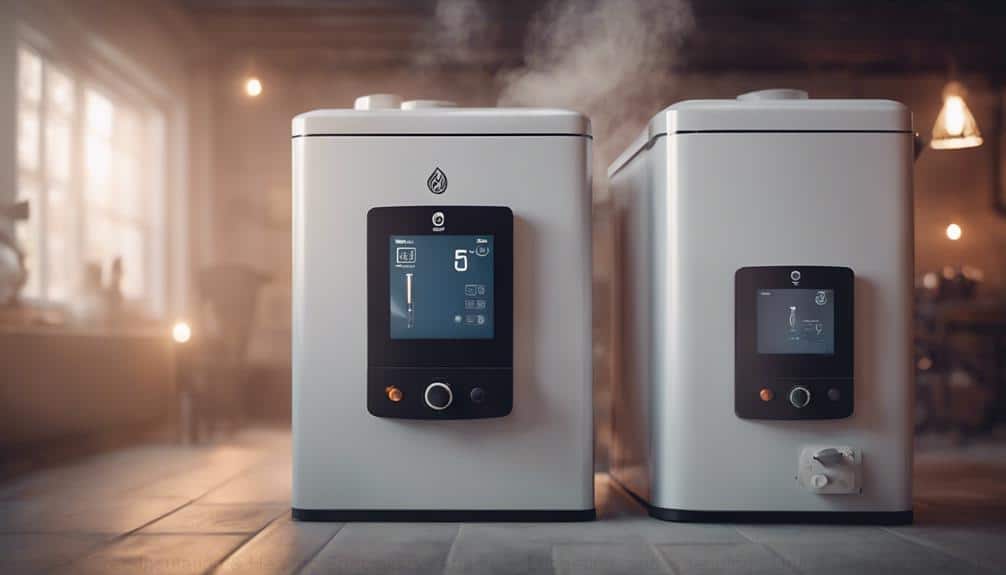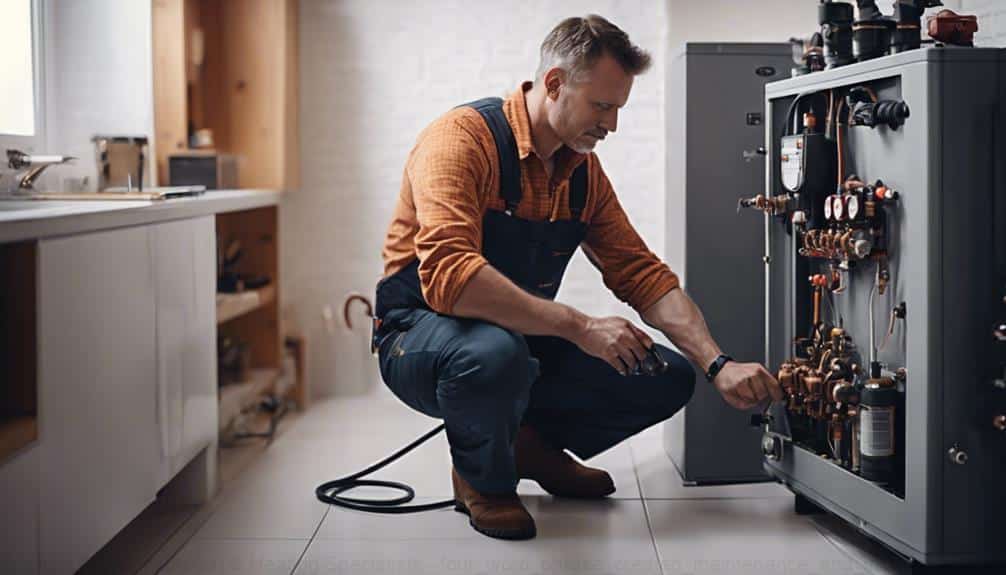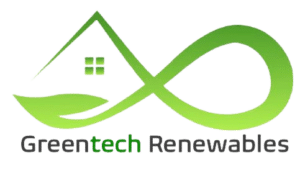Condensing boilers are innovating home heating by capturing heat from flue gases, converting water vapor into liquid to recover up to 80°C of heat. These boilers have over 90% efficiency, burning less fuel and saving up to £300 annually on energy bills while reducing carbon emissions.
The shift to these boilers offers advantages in energy efficiency and cost savings, contributing to a more environmentally friendly heating system. Proper maintenance and installation are essential for top performance.
Table of Contents
ToggleBenefits of Revolutionary Condensing Boilers

Condensing boilers improve energy efficiency in home heating systems by capturing heat from flue gases and converting water vapor into liquid. This process can recover up to 80°C of heat, resulting in more efficient heating. With over 90% efficiency compared to non-condensing boilers, they offer more value for money, burn less fuel, and produce more heat for the same cost.
This efficiency not only reduces energy wastage but also lowers carbon emissions, making them a greener option for households.
Efficiency and Environmental Impact
Condensing boilers are sustainable home heating systems that prioritize efficiency and environmental impact. These boilers capture heat from flue gases to maximize efficiency, reduce energy wastage, and lower carbon dioxide emissions.
Compared to non-condensing models, condensing boilers are over 90% efficient, saving up to 1,220 kg of CO2 per year. By recycling hot flue gases for water heating, they provide significant energy savings and contribute to a greener environment.
Financial Savings and Cost-Effectiveness

Condensing boilers offer cost savings and efficiency for home heating systems. With over 90% efficiency, they outperform non-condensing models, which typically range from 70-80% efficiency. By switching to condensing boilers, homeowners can save up to £300 annually on energy bills.
These boilers also reduce carbon emissions, promoting a greener environment. Overall, condensing boilers are a financially savvy and eco-friendly choice for heating homes.
Transitioning to Condensing Boilers
Switching to condensing boilers offers significant advantages in terms of energy efficiency and cost savings.
Condensing boilers provide higher efficiency, resulting in reduced energy consumption.
The installation process may require adjustments due to the different technology used, ensuring peak performance and efficiency.
This switch not only saves on energy but also contributes to a more environmentally friendly heating system.
Maintenance and Installation Considerations

Proper maintenance and installation are crucial for ensuring the optimal performance and efficiency of condensing boilers in home heating systems. Selecting the correct boiler size is essential to match the property's heating needs accurately. Regular servicing and cleaning of components are vital for system efficiency.
Professional installation is necessary to ensure safety and compliance with regulations. Following manufacturer guidelines for maintenance schedules can extend the boiler's lifespan and enhance its efficiency. By prioritizing proper maintenance and installation, homeowners can benefit from energy savings and reduced carbon emissions with condensing boilers.
Frequently Asked Questions
How Often Should Condensing Boilers Be Serviced for Optimal Performance?
Boilers require annual servicing to ensure optimal performance, energy efficiency, and system longevity. Regular maintenance helps uphold warranty coverage, reduces energy costs, and minimizes breakdown risks. A well-maintained boiler operates efficiently, benefiting from extended lifespan and sustained performance.
Are There Any Government Incentives for Upgrading to Condensing Boilers?
Government incentives, like tax credits and rebates, encourage the adoption of condensing boilers. These initiatives promote energy efficiency, leading to cost savings for homeowners and a reduction in carbon emissions and environmental impact.
Can Condensing Boilers Be Retrofitted in Older Homes With Non-Condensing Systems?
Upgrading older homes with condensing boilers instead of non-condensing systems is a viable option for improving energy efficiency and reducing costs. Despite potential variations in installation expenses, the long-term advantages of lower energy usage and decreased emissions outweigh the initial investment.
What Water Treatment Options Are Recommended for Condensing Boilers?
Water treatment for condensing boilers focuses on maintaining optimal water quality to prevent corrosion and scale accumulation. Regular maintenance, including descaling and system flushing, is essential to ensure peak performance and prolong the lifespan of the boiler system.
Do Condensing Boilers Require Specific Ventilation or Exhaust Requirements?
Proper ventilation and exhaust systems are essential for the installation and efficiency of condensing boilers. These systems may require higher initial costs, but they lead to reduced energy consumption and lower environmental impact in the long run, making condensing boilers a cost-effective choice.



